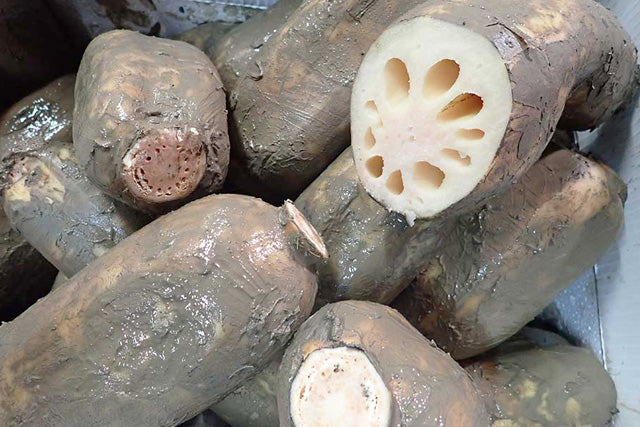
Health benefits for Root Vegetables
Root vegetables grow underground at the base of a plant. Technically they are not all roots; some are bulbous growths that store nutrients to feed the plant in colder months. They are low in calories and high in antioxidants. Each one contains a wide variety of vitamins and minerals. Some have nutrients in surprisingly high amounts.
1. Fresh Onions are high in fiber, vitamin C and antioxidants. Antioxidants are compounds that can protect your cells against oxidative damage and help prevent disease. It also significantly reduced blood sugar levels in people with diabetes. Onions may possess powerful anticancer properties, with observational studies linking a higher intake of this root vegetable to a lower risk of common types of cancer.
2. Fresh Sweet potatoes are rich in fiber, vitamin C, manganese and vitamin A and a good source of several antioxidants — including beta-carotene, chlorogenic acid and anthocyanins. Due to their vitamin A content, some studies suggest that this root vegetable may also improve immune function, protect against vision loss and support skin health.
3. Fresh Turnips are a great source of vitamin C, fiber, manganese and potassium. Adding vitamin C to your diet can help boost your immunity, with one study noting that getting enough of this vitamin could help reduce symptoms and shorten the severity of respiratory infections, such as the common cold.
4. Fresh Ginger is loaded with antioxidants, including a specific compound called gingerol, which has been associated with a long list of health benefits. It was effective at reducing nausea and morning sickness. It may also decrease pain and inflammation, with other research showing that ginger extract could help relieve menstrual pain and reduce symptoms in people with osteoarthritis.
5. Fresh Beets are high in nitrates, which are beneficial plant compounds that can help dilate your blood vessels, potentially lowering blood pressure and improving heart health. Studies also show that eating beets may improve exercise performance and increase blood flow to your brain.
6. Garlic is boasting a good amount of several important nutrients, including manganese, vitamin B6 and vitamin C.It’s well-known for its medicinal properties, which are mostly attributed to the compound allicin, which is released when cloves of fresh garlic are crushed, chewed or chopped. Studies have found that garlic can promote heart health by lowering blood pressure and levels of total cholesterol and triglycerides. It may also boost immune function, as research shows that it can decrease symptom severity and help prevent infections, such as the common cold.
7. Fresh Radishes are low in carbs and calories yet contain a good amount of fiber and vitamin C. Radishes also have antifungal properties and have been effective against several types of fungus in test-tube and animal studies Not only that, but one rat study found that the leaves of the radish plant may protect against stomach ulcers.
8. Fresh Fennel is supplying very few calories per serving, fennel packs fiber, vitamin C, potassium and manganese. It also contains the compound anethole, which gives fennel its distinct flavour, aroma and a wide array of health benefits. One rat study showed that anethole was able to modify some of the enzymes involved in the metabolism of carbs to help reduct blood sugar levels. What’s more, test-tube studies observed that anethole has antimicrobial properties and may inhibit the growth of bacteria.
9. Fresh Carrots are brimming with vitamins A and K, as well as the important antioxidant beta-carotene. Eating carrots has been linked to improved antioxidant status and lower cholesterol levels in both humans and animals. Other research shows that a higher intake of carotenoids, such as beta-carotene, may be associated with a lower risk of certain types of cancer, including breast, prostate and stomach cancer. What’s more, eating carotenoids may protect against age-related macular degeneration (AMD), the leading cause of vision loss.
10. Fresh Celeriac contains a hearty dose of vitamin C and phosphorus and is also an excellent source of vitamin K, squeezing in 80% of the daily recommended value in a single one-cup (156-gram) serving.Vitamin K is an essential nutrient, necessary for proper blood clotting. It’s also needed for the function of osteocalcin, a protein hormone that is key for your bone health.
11. Fresh Turmeric contains a compound called curcumin, which has been shown to prevent blood clot formation, lower cholesterol levels and reduce markers of inflammation in both test-tube and animal studies. Research in humans also suggests that curcumin may alleviate joint pain, stabilize blood sugar levels and decrease symptoms of depression .
12. Fresh Potatoes are also very nutritious, packing a good chunk of fiber, vitamin C, vitamin B6, potassium and manganese. Potatoes that have been cooked and cooled are also high in resistant starch, a type of starch that passes undigested through your digestive tract and helps feed your beneficial gut bacteria.Not to mention, boiled potatoes are an incredibly filling food, keeping you feeling fuller for longer, which may promote weight loss. Steer clear of fried potatoes or processed potato products, which are often high in fat, salt and calories yet lacking in nutrition.
13.Rutabaga supplies plenty of vitamin C, potassium and manganese along with disease-fighting antioxidants. Rutabagas are also a good source of fiber which can help support your digestive health and lower blood pressure and cholesterol levels.They also provide glucosinolates, sulfur-containing compounds that are commonly found in cruciferous vegetables that may help protect against cancer cell development and growth and prevent oxidative stress.
